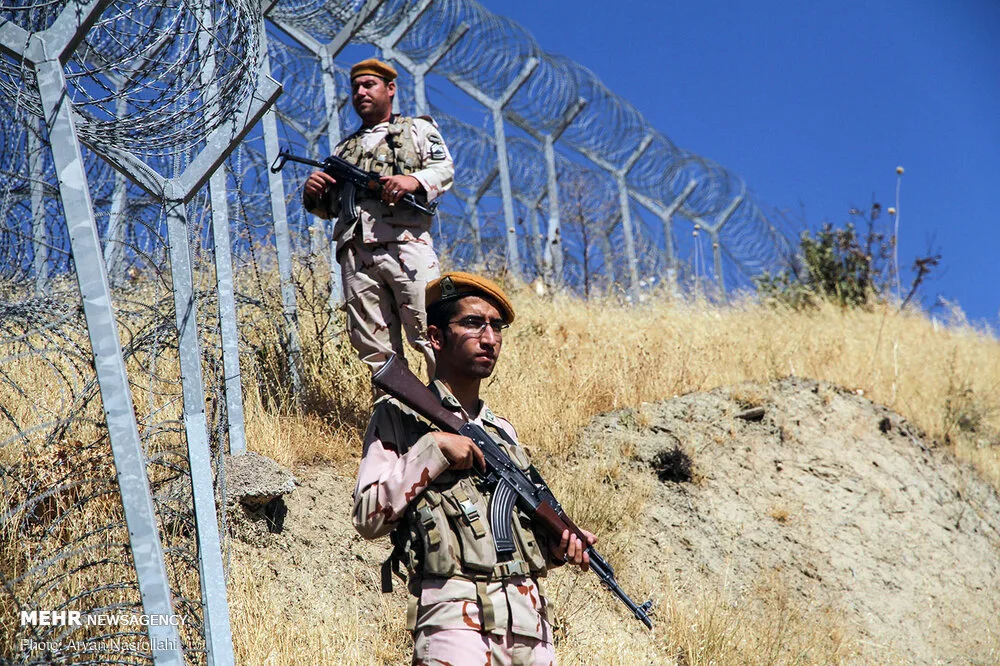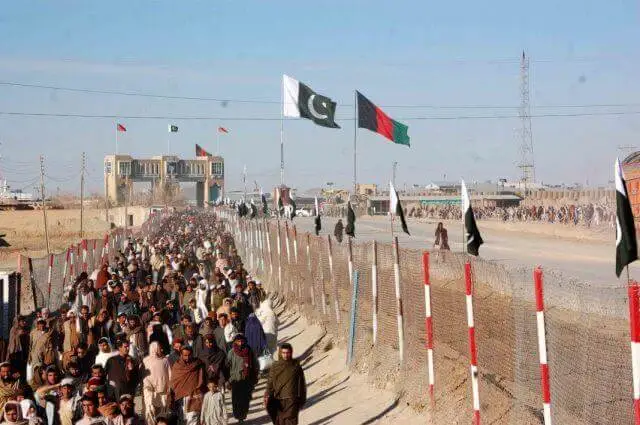Airstrikes by Pakistani warplanes inside Afghanistan have escalated tensions in recent days in an already volatile region.
The once close relations between the leaders of Pakistan and the Afghan “Taliban” have deteriorated, and violent clashes across the border have become alarmingly frequent.
The Pakistani government officially remained silent about the strikes in Afghanistan on December 24.
Targeting hideouts of Taliban militants
But security officials said privately that the Pakistani army targeted the hideouts of the Pakistani Taliban, the militant group that has carried out a series of terrorist attacks inside Pakistan, according to a report by the “New York Times”, Wednesday.
Security officials said several senior militants from the Pakistani “Taliban” movement were killed in the air strikes, which came days after 16 Pakistani soldiers were ambushed and killed in a border area. The “Taliban” regime in Afghanistan said that dozens of civilians were killed in the raids, including Pakistani refugee families.

The Taliban responds
The group condemned the attacks as a flagrant violation of Afghan sovereignty and said it had responded by launching attacks on “several points” inside Pakistan.
There has been no official comment from Pakistani officials on the attacks. However, they said they had foiled a cross-border incursion by militants they said was facilitated by the “Taliban” authorities.
The airstrikes were the third major military operation of the Pakistani army on Afghan territory since the return of the “Taliban” to power in August 2021, and the second last year alone.
Accusing the Afghan Taliban
Pakistani officials accuse the Afghan “Taliban” of providing shelter to the Pakistani Taliban, a charge denied by the leaders of the Afghan “Taliban”.
Pakistani officials defend the incursions into Afghanistan as necessary to curb attacks by the Pakistani Taliban on Pakistani citizens and soldiers, as well as on Chinese citizens participating in projects under the “Belt and Road Initiative”, Beijing’s infrastructure investment program.
“This is a red line for us; if the Pakistani Taliban is operating from there, it is unacceptable for us, “Pakistani prime minister Shahbaz Sharif said on Friday, during a meeting with government ministers, referring to Afghanistan.
Deep challenges at home
“We will defend Pakistan’s sovereignty at any cost,”he added. The Pakistani and Afghan governments, facing deep challenges at home, have good reason to prevent tensions from spilling over into a wider conflict.
But the escalation of attacks by the Pakistani Taliban, while waging a bloody campaign against the Pakistani state, has put enormous pressure on the leaders of both countries, according to Syed Akhtar Ali Shah, a former senior police officer in the Khyber Pakhtunkhwa province bordering Afghanistan. The Pakistani government must show its people that it will respond to the attacks, even as the country faces multiple crises hampering its fight against terrorism, including weak governance and economic constraints.
Deportation campaign and trade restrictions
After an attack by the Pakistani “Taliban” on a border post in September 2023. Pakistan launched a crackdown on undocumented Afghans, deporting more than 800 thousand people to Afghanistan.
Pakistan has also tightened trade restrictions on landlocked Afghanistan to put pressure on the “Taliban “movement.

Split in the ranks
For its part, the Afghan Taliban finds itself caught between Pakistan’s demands to take action against the Pakistani Taliban and strong domestic incentives not to do so.
Mr. Shah said that by resisting the entreaties of a stronger neighbor, the Afghan “Taliban” is fueling nationalist sentiments among Afghans, helping the movement to project its image as the legitimate rulers of Afghanistan instead of being the insurgents of the past.
The Afghan “Taliban” may also fear that a campaign against the Pakistani “Taliban”, with whom they share jihadist beliefs and deep-rooted ties, will split the ranks of the armed group.
A threat from “ISIS-Khorasan”
This may push the fighters towards the “Daesh” organization in Afghanistan, known as “Daesh” – Khorasan, which poses a growing threat to the Taliban government. Pakistan’s frustrations with the Afghan “Taliban” represent a sharp turn, when the “Taliban” took control of Afghanistan 3 years ago, Pakistan initially considered it a strategic victory. The American withdrawal precipitated the fall of the Ashraf Ghani government in Kabul, which the Pakistani government considered to be supportive of India, Pakistan’s sworn adversary. In addition, Pakistan was optimistic that the new “Taliban” regime would restrain the Pakistani Taliban.
These hopes were based on the idea that the “Taliban” would reward Pakistan for the secret support it provided during the US-led war. But the rise of the “Taliban” movement led, instead, to the revitalization of the armed group, which has about 6,000 fighters.
Advantage
The Pakistani Taliban has benefited from new resources, including sophisticated US-made weapons seized during the Taliban’s control over Afghanistan, and the release of hundreds of fighters from Afghan prisons. With greater encouragement, the group has stepped up its attacks inside Pakistan, targeting security forces and police in particular.
The bloodiest
The year that has just ended was the bloodiest in a decade between civilians and Pakistani security forces; 1,612 people were killed in 444 terrorist attacks, according to the”Center for research and Security Studies”, a research group, based in the Pakistani capital Islamabad.
Experts said that Pakistan made a strategic mistake in its calculations regarding the Afghan “Taliban” movement. “Expectations are not a strategy,”said Abdul Basit, an Associate Senior Fellow at the S. Rajaratnam School of International Studies in Singapore.
He said: “a clear and written agreement should have been concluded with the (Taliban) movement regarding counter-terrorism practices from the very beginning . The two countries have taken some steps to try to improve relations.
On the same day as the recent airstrikes, the newly appointed Pakistani special envoy, Mohammad Sadiq, was meeting in Kabul with senior Taliban officials, including interior minister Sirajuddin Haqqani and foreign minister Amir Khan Mottaki. The Afghan “Taliban” movement also addressed Pakistan’s concerns, by resettling some of the fighters of the Pakistani “Taliban” movement in central Afghanistan and keeping them away from the border area.
